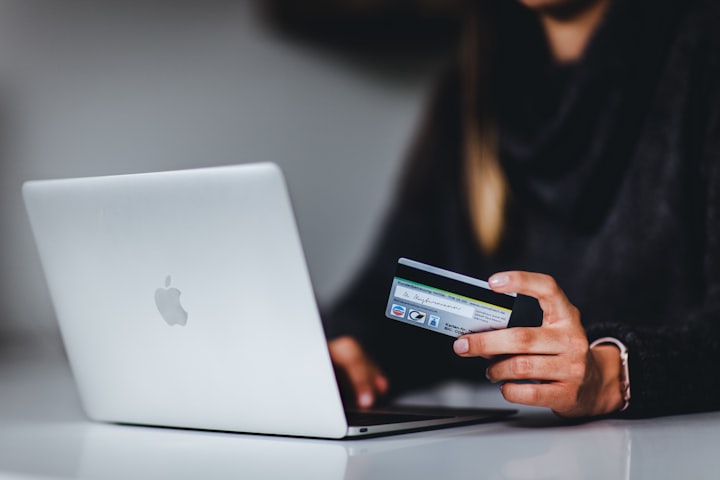The internet has made it possible for an unprecedented number of people to engage in online buying and selling. Virtual stores facilitate people to shop from the comfort of their homes, never leaving their homes and never buying under sales staff’s pressure.
The online market provides a new place to trade, one where it’s way more convenient to buy and sell almost any type of merchandise. Online trading turns out as a significantly cheaper and convenient way of dealing with others for both businesses and customers.
Still, just like anything related to the internet, there are benefits and dangers associated with online shopping, especially how you can transact with debit and credit cards.
In fact, this blog is all about helping you understand how you can enjoy the perks of online trading with the help of your credit cards but without becoming vulnerable to the pitfalls usually associated with it.
Adhere to Card Security Measures from the Very First Day
Don’t forget signing the back of your new credit card right away. It protects you if the card falls into someone else’s hands. Turn on suspicious activity alerts, also spending some time improving your password and PIN for the account.
It’s imperative to create a strong and unique password for each of your credit card accounts. Also, make sure your bank account and retail sites don’t share a common password. And take advantage of multifactor authentication in places it’s offered.
If your account requires the protection of a PIN, don’t choose a number you’re already using for other purposes. Also avoid using personal information when setting up PINs, such as your birthday digits or Social Security number.
Safeguard Your Sensitive Account Details
Don’t let anyone see your card when you come out in public. Never share your account number by telephone. If it’s all that essential, make sure you’re talking on a recorded line set up by your bank or the credit card company.
Always be apprehensive about any messages you receive via email, text, telephone, or social media, asking you to provide personal information or click suspicious links.
Strive to remove any traces of your sensitive information from the postal system by resorting to paperless statements and online payments. Shredding your documents containing any sensitive financial information before trashing them off is also a good idea.
Keep Your Information Updated
Tell your bank if you move. Doing so will allow your statement and other financial information to follow you to your new address and not end up in others’ hands.
Register for a warning with your financial institution and check to make sure you have given your current telephone number and email, so they can contact you quickly if there is fraud or suspicious activity occurs. Make sure you know how your financial institution will send a warning. You might be able to choose whether you want to be contacted via text, email, or phone calls.
Be Mindful of Your Receipts
If there is extra space on your credit card receipt, make a line through it so that no one can write in any additional stuff. It is also a good idea to check your receipt against the actual transactions you’ve made to find potential fraud transactions quickly. Also, avoid throwing duplicates and old receipts. Get rid of the ones you don’t anymore by shredding while securely filing the rest.
Secure Your Devices and Networks
If you allow your browser to save your credit card number, you can be vulnerable. Consider turning off the autofill function in all the browsers you are using to prevent unfavorable outcomes.
Additionally, consider switching to digital wallets, payment systems placed on your smartphone to complement electronic transactions using your credit card. Since digital wallets rely on authentication, tokenization, and encryption, they’re potentially safer than carrying credit and debit cards.
If you use a digital wallet, make its unlocking as difficult as possible with the help of passcodes and fingerprints. You may also consider downloading applications that help you find your phone if it’s lost.
Protect Yourself Online
You may already be practicing basic online and mobile safety measures; please also consider these credit card-specific ones.
- When shopping online, find sites with "https" at their web address ("s" standing for "safe" in this case) and green key icons. Ensure the URL includes the company’s correct name, no exception. And, even on a site whose safety is guaranteed, don’t share your information unless it clearly states how they’re going to use it.
- Though it looks convenient and harmless, avoid saving your credit card details on a shopping site.
- Consider using an online payment system or cellular payment services such as Android Pay, Apple Pay, PayPal, or Samsung Pay to ensure your credit card number stays out of the trader’s hand. So, if a trader is hacked, it cannot divulge your account number.
- Don’t shop or do financial transactions, including checking your account, using public Wi-Fi. Because this is a public network, anyone can easily see or access your information. You never know if it gets to someone with rogue intentions.
Keep Reviewing Your Account Information
Reviewing your latest account activities is fundamental for credit card safety and easy to do. You can do this using the bank application, online or by telephone. Most credit card companies also allow you to set email or text warnings to notify you and your issuer about unusual activities.
If you’ve experienced fraud or identity theft in the past, consider registering with credit monitoring services.
Report Fraudulent Activities ASA
- If you notice fraud on your account, report it to your bank as soon as possible.
- If you click the link from the email that turns out to be a phishing fraud, forward the copy to your bank so that they have as much information as possible to help you.
- Always double-check the receipt of any online transaction you make and ensure all entries match what is posted on your account. It can help you find unauthorized transactions quite easily.
- Don’t just throw away or leave a receipt behind. Manage things accordingly by shredding the information you don’t need and filing what you need.
- Maintain your updated credit card list with their corresponding account numbers and customer service numbers from your bank. It will be beneficial if your card gets stolen.
Be Vigilant About Phishing Attempts
Phishing refers to fraud efforts to steal your account information. Phishing examples include a forged link or email from an address you don’t recognize. To avoid being a phishing victim, make sure to follow these guidelines.
- If you get a call from your bank requesting your account information, you must be suspicious immediately. Today’s banks never call or send you information to verify your account. They never send you a link that claims to be a new version of their online application. Similarly, they avoid asking you for password security information like your last attended school. Even if the number calling you seems to come from your bank, it can still be a phishing fraud.
- One of the most common phishing techniques involves sending a link that seems to come from a legitimate bank or company. If you click the link, your data can be stolen.
- If you receive a suspicious email, report it immediately. Typos, additional spaces, and email addresses slightly varying from the original ones, are some hints of a possible phishing attempt.
Know Your Retailer
It doesn’t take much to start a website; so unless you are familiar with a retailer, take the time to get some background information on them before you provide sensitive financial information like your credit card numbers.
Make sure you can identify a physical address and contact information for the business, and check their local Better Business Bureau to see if the company’s reputation is solid. Search and read any online reviews about the business too.
Use a Dedicated Card for Online Shopping
You might want to open a credit card account specifically for online use. This would allow you to choose a card with a small credit limit so you can contain the potential for unauthorized charges.
Look for Card-issuer Protection Programs
When looking for a credit card to use online, consider those that offer strong consumer protection programs. You want a card from an issuer that protects its customers from liability for fraudulent charges.
Research Charitable Organizations
While considering a charitable donation online, first take the time to research the organization, verify its website, and check the site’s security protocols just as you would with a retail site.
These cautionary procedures are important because, especially after disasters, criminals have been known to set up phony organizations that pretend to collect money for victims but exist only to steal credit card numbers. Don’t let them turn your good intentions into their ill-gotten gain.
Keep PINs and Passwords Unpredictable
In today’s world, one can quickly get a little overwhelmed trying to remember multiple PINs and passwords. Even so, it is important not to fall back on predictable PINs like 1-2-3-4 or predictable passwords like a family member’s name.
Also, don’t choose the same PIN or password over and over for multiple accounts because that would mean that, if a crook finds his way into one of your accounts, he’ll have the key to open all of them.
Take the greatest care when choosing PINs and passwords for financial accounts in particular. Also, if you write your PINs and passwords down, keep them in a very private and secure place in your home — never keep them at work, and don’t carry them in your wallet.
Conclusion
There are countless benefits of buying and selling online, and convenience tops the list. But you need to ensure your personal and financial safety. If you come across a deal that looks too good to be true, it usually is, and you need to back out immediately.
If your gut feeling about a particular website isn’t positive, you should leave it without sharing your credit card or other financial details and look for an alternative. You’ll find plenty of them. Remember, it’s always better safe than sorry.







Comments
There are no comments for this story
Be the first to respond and start the conversation.